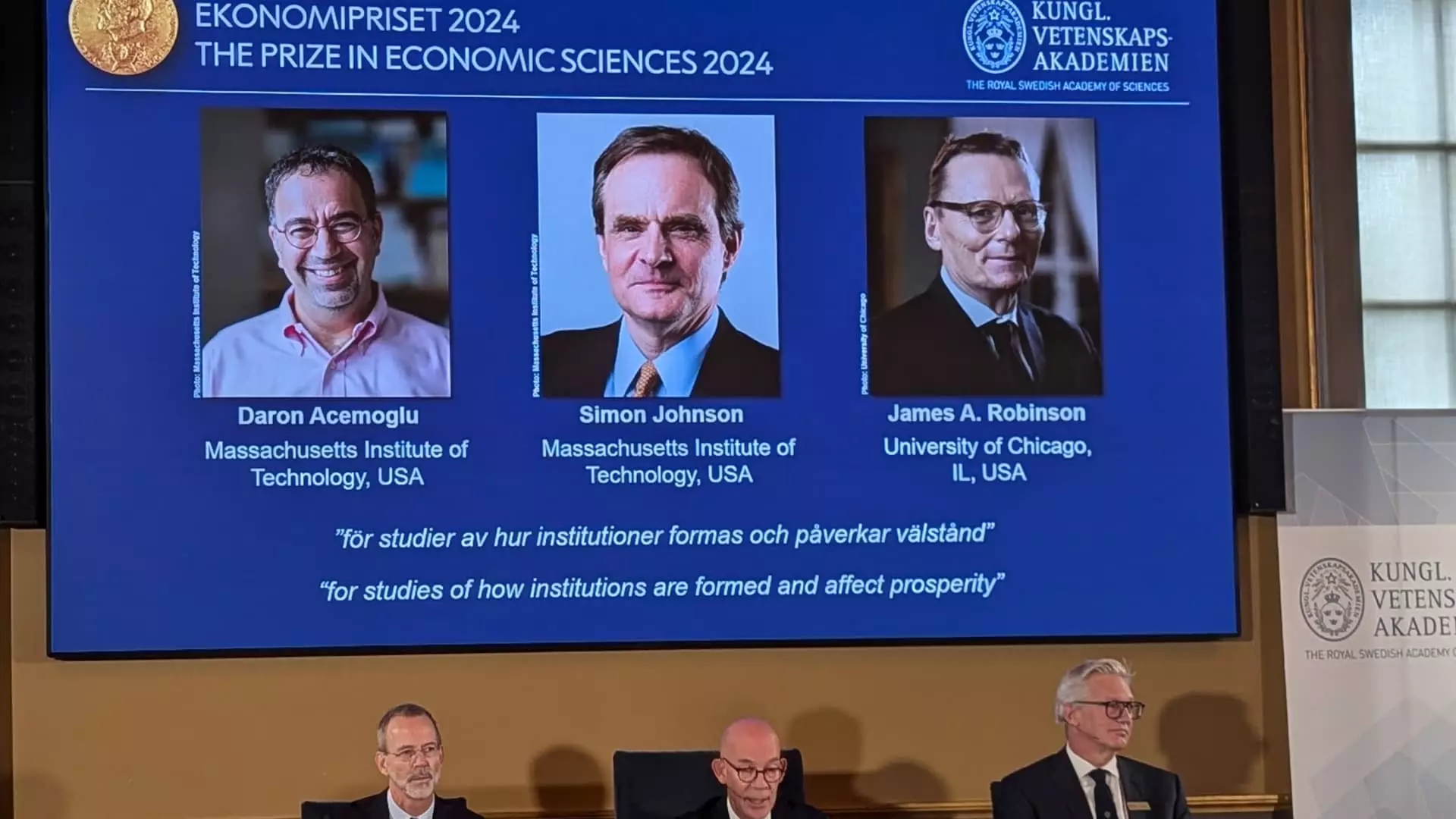On a notable Monday, the Nobel Prize in Economic Sciences was awarded to U.S.-based economists Daron Acemoglu, Simon Johnson, and James Robinson, who have ventured into the depths of wealth inequality on a global scale. Their research has illuminated the mechanisms behind why some nations thrive while others struggle to break free from the chains of poverty. The Nobel committee underscored the significance of their findings, which emphasize that nations lacking proper institutional frameworks and rule of law find it exceedingly difficult to foster economic growth or improve societal conditions. This recognition not only highlights their academic contributions but also reignites essential conversations around the impact of political and economic institutions on prosperity.
Acemoglu and Johnson, both professors at the Massachusetts Institute of Technology (MIT), alongside Robinson, who directs the Pearson Institute at the University of Chicago, delve into a critical inquiry: What leads to stark wealth disparities across the globe? Their collaborative work has significantly reshaped our understanding of economic evolution. One of their seminal contributions is the 2012 book “Why Nations Fail: The Origins of Power, Prosperity, and Poverty,” which posits that the fundamental origins of economic disparity stem from historical institutional choices made during the era of colonization. Colonizers often imposed exploitative systems that fostered inequality and inhibited prosperity in many subjugated regions, contributing to a legacy of economic challenges.
The stark statistics shared by the Nobel committee are telling: the richest 20% of countries are now approximately 30 times wealthier than the poorest 20%. This growing divide, rather than narrowing, seems to be perpetuating itself, as wealth accumulates disproportionately in wealthier nations. The findings of these laureates illuminate a critical socio-economic truth: decades of oppressive governance, social stratification, and exploitation can lock nations into a cycle of poverty that becomes increasingly hard to escape. This enduring gap raises essential questions regarding social policies, international aid, and global governance structures—the kinds of inquiries that the laureates have inspired through their extensive research.
The Nobel committee highlighted the role of colonial histories in shaping the current economic landscape—a consideration that is often overlooked in mainstream economic analysis. The researchers articulate how nations that were wealthy during the colonial era, often due to the robust exploitation of resources and human capital, are now witnessing their economic descendence. The insights provided by Acemoglu, Johnson, and Robinson lead us to ponder the long-term consequences of policy decisions made centuries ago and their lingering effects on modern economies.
Acknowledging their monumental contributions, Jakob Svensson, a prominent economist at Stockholm’s Institute for International Economic Studies, remarked on the pioneering empirical and theoretical approaches introduced by the laureates to study global inequality. This framing emphasizes that the research conducted by Acemoglu, Johnson, and Robinson is not merely an academic curiosity but a vital inquiry that propels forward much of the discourse surrounding global economic policies.
As wealth inequality continues to captivate scholars and policymakers alike, the questions planted by these economists remain some of the most urgent in contemporary social sciences. Their recognition through the Nobel Prize serves as a crucial endorsement of the need to confront the realities of wealth inequality head-on, compelling nations and institutions around the world to reflect on their roles in perpetuating these disparities.
The world of economics is not solely about number crunching and abstract theories; it is fundamentally intertwined with the human experience. The work of Acemoglu, Johnson, and Robinson shines a light on the human cost of inequality while providing actionable insights that might inform future economic policies. As they share the Nobel Prize testament to their contributions, the economic community stands reminded of the imperative to seek not just wealth but equitable prosperity for all. Their work invites a continued exploration of how we might reform existing systems to foster inclusivity and opportunity in an increasingly unequal world.


Leave a Reply